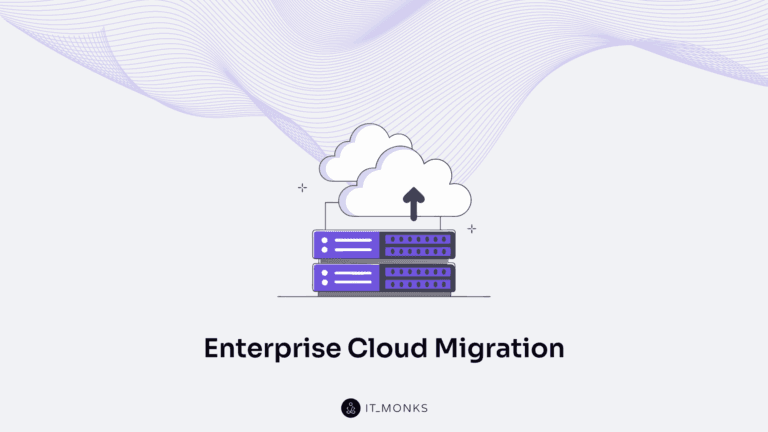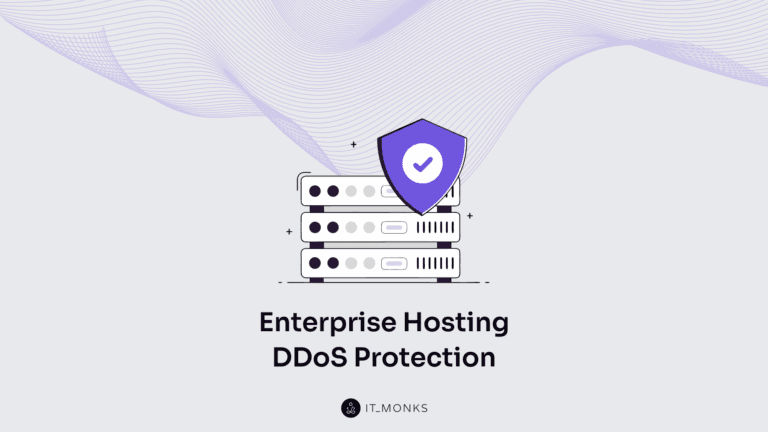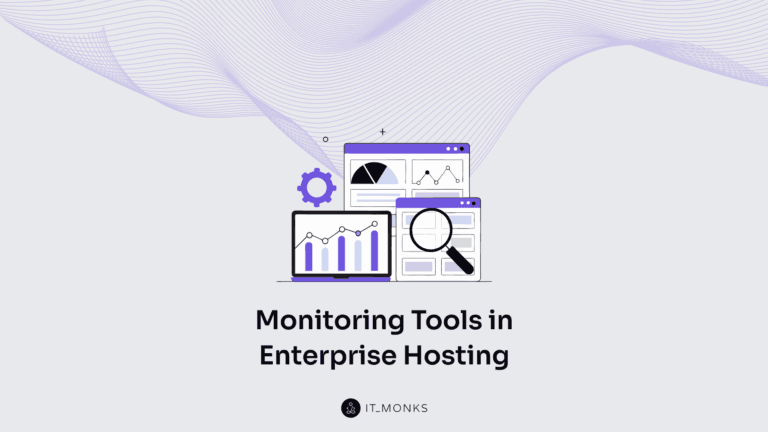Basic Modules of Ecommerce Website: Complete Guide
Table of Contents

Modern ecommerce stores need various features for an optimal shopping experience. Traditional ecommerce systems bundle all services into a single platform, which can limit each service’s potential and scalability. Modular commerce breaks down the backend into modules, each handling a specific service. This approach offers more flexibility, a cleaner codebase, and easier deployment of new features. This post will focus on the eight basic modules of ecommerce website to help you deliver the utmost user experience and monetize your store. Let’s dive in!
What Are Ecommerce Website Modules
Ecommerce modules are distinct components that form the foundation of an ecommerce system. Each module addresses a specific aspect of the website’s functionality, such as product catalog management, shopping cart, payment gateway WooCommerce integration, order management, customer relationship management (CRM), content management, security, and analytics.
The basics of ecommerce website modules include:
- Product Management: Modules that help organize and display products, including categories, descriptions, and multimedia.
- Customer Interaction: Tools for managing customer relationships, communications, and personalized experiences.
- Transaction Processing: Components that handle payments, orders, and inventory management.
- Content Handling: Systems for creating, managing, and optimizing website content.
- Security Measures: Features designed to protect customer data and secure transactions.
- Analytics: Modules that track and analyze website performance and customer behavior.
Importance of Module System
The module system is crucial for ecommerce websites for several reasons:
- Scalability. Modules allow for the seamless addition of new features as the business grows. Individual modules can be updated or replaced without disrupting the entire website.
- Customization. Each module can be customized to meet specific business needs and preferences. Ensures the website’s functionality aligns with the brand’s identity and goals.
- Efficiency. Automates routine tasks, reducing manual effort and operational overhead. Optimized modules enhance website speed and responsiveness.
- User Experience. Well-coordinated modules provide a smooth and intuitive shopping experience. Improved usability leads to higher customer satisfaction and retention rates.
- Maintenance. Modules simplify website maintenance, making it easier to implement updates and troubleshoot issues. Isolated updates and fixes minimize downtime and maintain website availability.
The module system is an integral part of your web store. Once you learn how an ecommerce website works, you will better understand which modules are best for your ecommerce system.
8 Ecommerce Website Basic Modules

A successful ecommerce website comprises various modules that work together to create a seamless shopping experience and efficient business operations. Each module ensures the website’s functionality, security, and user satisfaction. Here are the eight basic modules of an ecommerce website you should consider implementing in addition to the rest of the features mentioned in the ecommerce website checklist.
Product Catalog
The product catalog is the core of an ecommerce management system, acting as a comprehensive list of all products available for sale. A well-organized product catalog is essential to providing customers with a positive shopping experience and streamlining inventory management. A structured product catalog enhances the user experience, making it easier for customers to find what they want. It also simplifies the process of updating and managing product information.
Key features of a product catalog include:
- Product categories, which group products together to facilitate navigation.
- Filtering options allow customers to narrow their search based on attributes like price, brand, and specifications, enhancing their search experience.
- A robust search functionality enables customers to find specific products using keywords quickly.
- Detailed product descriptions provide essential product information, including specifications, features, and benefits.
- High-quality images and multimedia, such as videos, help customers make informed purchasing decisions.
Shopping Cart
The shopping cart module is where customers store products they intend to purchase. It is a crucial part of the ecommerce system, bridging product selection and checkout. Customers can easily add or remove products from their cart, save products for future consideration, and adjust the number of items they wish to purchase. An intuitive and user-friendly shopping cart reduces abandonment rates and enhances customer satisfaction.
Key features of a shopping cart include:
- Add/Remove Products: Customers can easily add items to their cart or remove unwanted ones.
- Save Items for Later: Option to save products for future consideration.
- Update Quantities: Customers can change the quantity of each item in their cart.
- Seamless Experience: A well-designed shopping cart ensures a smooth transition from product selection to checkout, reducing cart abandonment rates.
Payment Gateway Integration
Payment gateway integration is essential for processing payments securely on an ecommerce website. It facilitates the transfer of payment information from the customer to the merchant and then to the payment processor. Security features such as SSL certificates and PCI compliance protect sensitive customer data. Common payment methods include credit cards, PayPal, and other digital wallets like Apple Pay and Google Wallet, which offer convenience and security for customers.
Key features of a payment gateway include:
- Various Payment Methods: Support for credit/debit cards, PayPal, and other payment options.
- Security: Implementation of SSL certificates and PCI compliance to protect sensitive customer data.
- Seamless Checkout: A user-friendly and secure payment process enhances customer trust and satisfaction.
Order Management System (OMS)
An Order Management System (OMS) tracks and manages orders from placement to delivery, ensuring that the fulfillment process is smooth and efficient. Features of an OMS include order tracking, which allows customers to monitor the status of their orders, and order history, which provides a record of past purchases for customer reference. This is one of the basic modules of an ecommerce website, streamlining the process of handling returns and exchanges and ensuring real-time updates on product availability through inventory integration.
Key features of an OMS include:
- Order Tracking: Customers can track the status of their orders.
- Order History: Access to past orders for both customers and administrators.
- Returns and Exchanges: Efficient management of product returns and exchanges.
- Inventory Integration: Synchronization with inventory management systems to keep stock levels updated.
Customer Relationship Management (CRM)
Customer Relationship Management (CRM) focuses on maintaining and enhancing customer relationships, which is critical in customer retention and loyalty. CRM systems store detailed information about customers, enabling personalized experiences. Communication tools facilitate emails, notifications, and other forms of interaction with customers. Personalized recommendations suggest products based on customer behavior and preferences, while loyalty programs encourage repeat business through rewards and incentives.
Key features of a CRM include:
- Customer Profiles: Comprehensive information about each customer, including purchase history and preferences.
- Communication Tools: Automated emails and notifications to keep customers informed.
- Personalized Recommendations: Tailored product suggestions based on customer behavior and preferences.
- Customer Retention: Tools for loyalty programs and customer retention strategies.
Content Management System (CMS)
A Content Management System (CMS) creates, manages, and optimizes website content. It is one of the essential basic modules of an ecommerce website for maintaining fresh and engaging content. Blogs and articles provide valuable information to engage and educate customers while compelling product descriptions and landing pages drive conversions. User-friendly CMS platforms are easy to use and support easy SEO steps for WordPress, contributing to better website visibility and customer engagement.
Key features of a CMS include:
- Website Content Management: Handling of blogs, articles, product descriptions, and landing pages.
- User-Friendly Options: CMS platforms like WordPress, Magento, and Shopify offer intuitive interfaces.
- SEO Impact: Proper content management enhances search engine optimization, driving more traffic to the site.
Security Features
Security is a paramount concern for ecommerce websites. Implementing robust security features is crucial to protect customer data and maintain trust. Critical security features include SSL certificates, which encrypt data to ensure secure transactions, and data encryption, which protects sensitive information from unauthorized access. Secure login methods and regular security audits help identify and fix vulnerabilities. Educating customers about security practices enhances trust and encourages safe online behavior. For more detailed information on ecommerce security, refer to our article on ecommerce website security.
Major security features include:
- SSL Certificates: Encrypt data transferred between the website and the user.
- Data Encryption: Protect sensitive information from unauthorized access.
- Secure Login: Implement robust authentication mechanisms.
- Regular Security Audits: Periodic checks to identify and fix vulnerabilities.
- Customer Education: Inform customers about security practices and encourage safe online behavior.
Analytics and Reporting
Analytics and reporting modules provide insights into business performance, helping to make data-driven decisions that enhance customer experience and drive growth. These modules track sales, monitor revenue and sales trends, and analyze customer behavior to understand how customers interact with the website. Evaluating site speed, traffic sources, and other critical metrics helps improve website performance. Using data to refine strategies and improve customer experience is essential for long-term success.
Key features of analytics and reporting:
- Sales Tracking: Monitor sales data to identify trends and performance metrics.
- Customer Behavior Analysis: Understand how customers interact with the website.
- Performance Metrics: Track page load times, bounce rates, and conversion rates.
- Data-Driven Decisions: Use analytics to inform business strategies and improve customer experience.
Conclusion
Ecommerce website modules are the backbone of a functional and efficient online store. By understanding and implementing these essential modules, businesses can create a seamless shopping experience, enhance security, and drive growth. Whether setting up a new ecommerce site or optimizing an existing one, focusing on these modules will help you succeed in the competitive online marketplace.
Whenever you need expert advice and professional assistance with launching an outstanding ecommerce store that will appeal to your target audience and emphasize your brand identity, feel free to contact the IT Monks team. We have expertise in developing websites that will help your business get noticed. We take care of your ecommerce store launch from A to Z, going beyond adding basic modules of an ecommerce website to your store. Contact us today to discuss your project details!
Contact
Don't like forms?
Shoot us an email at [email protected]

Send a Project Brief
You need to load content from reCAPTCHA to submit the form. Please note that doing so will share data with third-party providers.
More InformationYou are currently viewing a placeholder content from Turnstile. To access the actual content, click the button below. Please note that doing so will share data with third-party providers.
More InformationYou are currently viewing a placeholder content from Facebook. To access the actual content, click the button below. Please note that doing so will share data with third-party providers.
More InformationYou are currently viewing a placeholder content from Instagram. To access the actual content, click the button below. Please note that doing so will share data with third-party providers.
More InformationYou are currently viewing a placeholder content from X. To access the actual content, click the button below. Please note that doing so will share data with third-party providers.
More Information


